

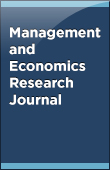
10.18639/MERJ.2025.9900117
Open Access
Dec 30, 2025
This study examines the impact of public debt, governance quality, and debt servicing on human development in West Africa, within the framework of the Dual Gap Theory. Using balanced panel data for 17 West African countries covering the period 2010–2024, the HDI is employed as a comprehensive measure of development outcomes. To account for endogeneity, heterogeneity, and distributional effects, the study applied a combination of QvM regression and system GMM. The empirical results reveal that government debt and debt service payments exerted a consistently negative and statistically significant effect on human development across the entire development distribution, with the strongest adverse impacts observed at median development levels. In contrast, governance quality emerges as the most influential positive determinant of human development, significantly enhancing the effectiveness of public resources and mitigating the adverse effects of debt. Gross fixed capital formation and trade openness also contribute positively to human development, underscoring the roles of investment and external sector integration in alleviating savings–investment and foreign exchange constraints. Diagnostic tests confirm the validity and robustness of the GMM estimates. Overall, the evidence suggests that public debt can undermine human development in West Africa when not supported by strong institutions and productive investment. The study has highlighted the central importance of governance reforms, prudent debt management, and strategic investment and trade policies in advancing sustainable human development across the region.
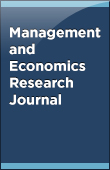
10.18639/MERJ.2025.9900116
Original Research Article
Nov 17, 2025
Cervical cancer remains one of the leading causes of cancer-related deaths among women in Brazil and worldwide, despite being largely preventable through regular and effective screening. This study, through a literature review, analyzes the socioeconomic barriers that hinder early screening, highlighting their impacts on both female mortality and public health costs. The analysis, based on a literature review of primary and secondary data, indicates that strengthening organized screening programs and HPV vaccination campaigns not only reduces mortality but also represents a cost-effective strategy given the expenses associated with treating advanced stages of the disease. The results highlight the importance of targeted public policies that consider regional and socioeconomic inequalities in access to prevention. The study contributes to the debate on prevention as an instrument for reducing inequalities and for economic sustainability in the health system.
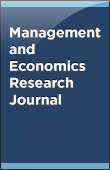
10.18639/MERJ.2025.9900115
Original Research Article
Oct 20, 2025
This study investigates the impact of government subsidies on the expansion of vineyard surface areas and the production of alcoholic beverages in Kosovo. Over recent years, subsidies have played a pivotal role in revitalizing Kosovo’s viticulture and alcohol production sectors, leading to a notable increase in vineyard acreage and a subsequent rise in local wine and spirits’ output. By analyzing subsidy allocations, vineyard expansion data, and production figures, this research assesses the effectiveness of these financial incentives in fostering industry growth. The findings indicate that while subsidies have stimulated significant development in Kosovo's viticulture and alcohol production, they also pose challenges related to market dynamics, economic sustainability, and potential over-reliance on government support.
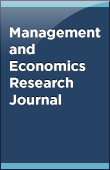
10.18639/MERJ.2025.9900114
Original Research Article
Sep 30, 2025
This article investigates the impact of human capital on economic growth, emphasizing the importance of education as a key factor in increasing worker productivity and promoting economic development. The analysis explores various theories, including neoclassical and endogenous growth models, highlighting the positive externalities associated with the accumulation of human capital. Using panel data for the 26 Brazilian states and the Federal District between 2012 and 2020, the study examines the relationship between the proportion of people with secondary education, energy consumption, schooling, internet access and GDP. The results highlight the importance of education and access to services as critical drivers of sustainable economic growth. The fixed effects panel model, chosen as the most appropriate, reveals a positive and significant impact of secondary education and energy consumption on GDP. The findings suggest that investments in human capital, particularly in education and innovation, are essential for long-term economic development.
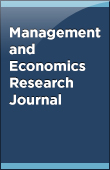
10.18639/MERJ.2025.9900113
Original Research Article
Aug 31, 2025
Understanding the challenges faced daily by people with ASD is of importance not only for public policy managers but for society as a whole. In this sense, this article aims to analyze the barriers faced by people with autism in the labor market, considering issues related to communication, social interaction, flexibility and adaptation. Also, investigate opportunities for inclusion in the labor market for autistic individuals. Methodologically, it was a qualitative bibliographic research, based on primary and secondary data. As a result, it was observed that positive changes have been happening, but there is still a long way to go in the fight for equality of people with ASD in the labor market.
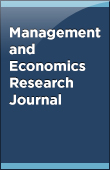
10.18639/MERJ.2025.9900112
Original Research Article
Jul 31, 2025
India’s handloom sector, employing over 4.3 million rural artisans, faces challenges from mechanization, globalization, and limited market access. E-commerce platforms offer transformative potential by enabling direct-to-consumer sales, enhancing income levels, and promoting sustainability. This study investigates how e-commerce influences handloom weavers’ livelihoods, focusing on market access, economic outcomes, and barriers to digital adoption in rural areas. Using secondary data from government reports, industry analyses, and case studies of online cooperatives—Banarasi Weavers Cooperative and Tamil Nadu’s Co-optex—the research highlights improved market reach and income for digitally engaged weavers. However, infrastructural, educational, and socio-economic barriers limit adoption. Policy recommendations include subsidies for digital infrastructure, training programs, and partnerships with e-commerce platforms to ensure equitable benefits.
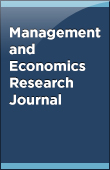
10.18639/MERJ.2025.9900111
Original Research Article
Jul 25, 2025
This investigation examines the potential of Artificial Intelligence (AI)-enhanced strategies to enhance the resilience of supply chains and logistics in South Africa’s challenging environment. The global disruptions, particularly those emphasised by the COVID-19 pandemic, have rendered the establishment of resilient and sustainable logistics systems an urgent priority. This study examines the impact of AI on improving efficiency, sustainability, and resilience in the logistics sector of South Africa’s supply chain practices. This study uses a systematic review approach that is based on the PRISMA framework. A thorough literature review was performed, concentrating on the convergence of artificial intelligence, sustainable logistics, and South Africa’s environmental issues. Thematic analysis was conducted using Atlas-ti software to identify and organize key themes related to AI applications in logistics and supply chain management. Studies were selected based on predefined criteria. The results highlight the critical role of AI technologies, including machine learning, predictive analytics, and big data analytics, in the advancement of sustainable logistics. AI applications improve transportation efficiency, optimize inventory management, diminish carbon emissions, and augment supply chain transparency. The emergence of AI-driven solutions and GSCM frameworks, which are in alignment with sustainable practices and improve operational resilience, is a noteworthy trend. The synthesis indicates an increasing dependence on AI and big data analytics to improve supply chain capabilities and augment adaptability to environmental disruptions. The study concludes that AI-improved strategies provide significant advantages in the promotion of sustainable logistics and the improvement of resilience in supply chain operations. The implementation of AI solutions improves operational efficiency and aligns logistics practices with environmental sustainability objectives. The findings of this investigation offer valuable advice to academics, policymakers, and industry professionals who are striving to leverage AI for sustainable supply chain management in South Africa.
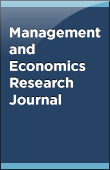
10.18639/MERJ.2025.9900110
Original Research Article
Apr 17, 2025
The paper discusses how social media, including Instagram, Facebook, and TikTok, play a key role in forming consumers’ attitudes towards offline shopping and their purchasing behavior in physical stores. Influencer endorsements, user-generated content, and targeted ads have become social media marketing strategies that brands have been using to raise visibility and get more foot traffic to their brick-and-mortar locations. The study explores the psychological triggers that lead consumers to engage with social media (FOMO, social proof, online reviews) to act on time-sensitive offers and visit physical stores. Social commerce and AR technologies are also highlighted as a transformative trend that improves the consumer's in-store shopping experience and facilitates virtual preview and integrated buying options. Beyond enhancing online engagement, these innovations help close the digital and offline purchase gap by leading consumers to make purchases in offline channels. The paper concludes that effective social media marketing and innovative technologies are important for offline retailers to survive in the changing retail landscape. For retailers, the integration of AR and social commerce enables future trends that create custom, interactive experiences that drive both online and offline sales.
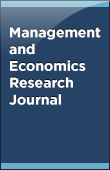
10.18639/MERJ.2025.9900109
Conceptual Article
Apr 15, 2025
This conceptual paper analyzes the use of dynamic pricing in soccer competitions in the United States, emphasizing the role of business analytics in enabling data-driven ticket pricing methods. Based on economic, marketing, and sports management perspectives, we identify a gap in the literature about dynamic pricing in soccer events, which have traditionally depended on static pricing models. Our research examines how dynamic ticket pricing might enhance income and attendance for soccer competitions while ensuring fairness for fans. Our research reveals that dynamic pricing enables organizers to maximize revenue from high-demand matches by increasing ticket prices to align with real-time market value and to enhance attendance for low-demand matches by strategically reducing prices and providing discounts. These modifications are facilitated by business analytics, encompassing demand forecasts and price optimization algorithms, which guarantee that current data informs pricing decisions on consumer willingness to pay. Our analysis emphasizes that dynamic pricing in sports functions not merely as a mechanism for price augmentation but may also augment consumer value and accessibility, as demonstrated by its capacity to lower ticket prices when warranted. Drawing on existing literature, the paper provides a theoretical framework and practical recommendations, highlighting areas for future empirical research. We offer practical insights into the implementation of dynamic pricing in soccer, emphasizing the significance of analytical models, effective stakeholder engagement, and policy considerations to balance revenue objectives with fan experience. These findings enhance sports management literature by applying dynamic pricing theory to U.S. soccer and providing a framework for utilizing business analytics in the optimization of sports revenue.
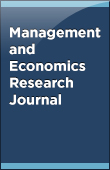
10.18639/MERJ.2025.9900108
Original Research Article
Apr 03, 2025
This conceptual article investigates the influence of inclusive leadership on individual job performance and the mediator role of psychological safety. The focus is primarily on inclusive leadership to ensure psychological safety in the workplace, which is crucial for improving creativity, engagement, and job satisfaction. This study emphasises the gap in understanding how these variables interact in academic settings by examining the literature on inclusive leadership, psychological safety, and individual job performance. The research confirms that inclusive leadership creates a supportive work environment where employee resilience and innovation are increased through psychological safety. As the mediator, psychological safety also helps to understand how inclusive leadership can positively impact individual work performance, thus contributing to employee well-being and organisational success. The practical implications of this research are significant, as it provides insights into how leadership styles can improve employee performance in diverse and inclusive workplaces, offering valuable guidance to practitioners in organisational behaviour and leadership studies.
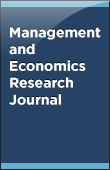
10.18639/MERJ.2025.9900107
Original Research Article
Mar 20, 2025
Similar to numerous other emerging economies, Brazil has experienced a significant increase in foreign investment during the past few years. In 2022, the global inflows of FDI amounted to US$ 1.29 trillion, reflecting a 12% decrease compared to the previous year. This decline can be attributed mostly to substantial divestments undertaken in Brazil. The objective of this study is to examine and assess the subsequent aspects of political stability on FDI and Brazil's broader economic growth. The present study used an ARDL technique to analyze the years 1996 to 2022, utilizing secondary data. The results suggest that the presence of political stability has a positive impact on foreign investment, commercial activities, and the overall economy of Brazil in the long term. The stability of policies is intricately linked to the political system of a nation and exhibits a positive correlation with both FDI and foreign portfolio investments. It is recommended that the administration abstain from implementing any arbitrary modifications presently in order to retain policy coherence.
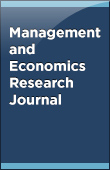
10.18639/MERJ.2025.9900106
Original Research Article
Feb 25, 2025
The 4IR has brought about progress that has had a major impact on industries and educational institutions worldwide. The HE sector in SA has to deal with many challenges to adapt to 4IR and also to ensure that students master the necessary soft skills required for success in an increasingly digital and automated world. This SLR examined the impact of the 4IR on developing soft skills among students in HEIs in SA. A comprehensive search of articles and literature published between 2019 and 2024 was conducted and was conducted across multiple databases. The literature review confirmed how integrating advanced digital technologies into higher education has impacted the development of soft skills such as critical thinking, adaptability, communication, and problem-solving. The findings confirmed that despite the many benefits of 4IR, HEIs still face significant challenges, including inadequate technological infrastructure, limited digital literacy, and a lack of strategic approaches to incorporate soft skills into traditional curricula. The study concluded that successfully addressing the challenges of 4IR requires much more investment in technology and the implementation of innovative pedagogical practices and curriculum reforms that emphasize holistic skill development. Therefore, based on these insights, recommendations were made for educational leaders and industry stakeholders to develop comprehensive frameworks, including curriculum design, more collaboration between HEIs and industries, and greater emphasis on lifelong learning initiatives to impact the holistic development of students' soft skills. The gaps in existing research have been identified and focused on the challenges faced by South African HEIs. Challenges include increased investment in educational resources, curriculum development, and technology adoption to ensure the country remains competitive within the global 4IR context. These conclusions have laid a foundation for future research, particularly aimed at adapting strategies to improve soft skills development in HEIs in SA to prepare students for the future demands of the workforce.
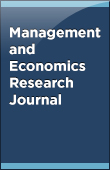
10.18639/MERJ.2025.9900105
Review Article
Feb 24, 2025
Interprofessional collaboration in higher learning education is widely acclaimed as a critical prerequisite to achieving greater quality and coherence in the facilitation of teaching and learning. The COVID-19 pandemic not only presented higher education with challenges but also allowed all academics to rethink the assumptions about teaching and learning strategies that promote student engagement and academic success across the faculties. Interprofessional reflection is important because it provides opportunities for innovation and new teaching-learning strategies that meet the current climate of higher learning, which promotes student engagement and academic success. The aim is to explore and synthesise literature regarding effective teaching and learning strategies that encourage student engagement and academic success across faculties in higher education. Arksey and O'Malley's five-stage framework served as the basis for the scoping review adopted by the review. Three databases were searched for sources: CINHAL, Scopus, and Medline. Only English full-text written articles across various research designs published between 2016-2023 were part of the inclusion criteria for the review. As a result, four themes emerged: the use of technology as a teaching and learning modality, work-integrated learning for theory practice integration, university teacher-centric approach, and student-centric approach. In conclusion, across faculties, there is a focus on integrating technology in the teaching and learning process, using various pedagogies to meet the needs of different students. Moreover, there is a need to encourage educators to adopt a growth mindset, involving students actively in the learning process. This approach will encourage students to develop critical thinking, become self-directed learners, and fully engage within their academic communities.
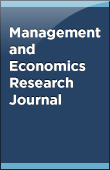
10.18639/MERJ.2024.9900104
Original Research Article
Dec 20, 2024
A workplace that is harmonious and that guarantees satisfaction of workers and employers’ aspirations is essential for enhanced services provision in Kenya’s devolved public health sector. The devolved public health sector has experienced frequent and often localized health workers’ industrial actions since the devolution of health care services in 2013. These industrial actions not only affect the economic growth of the country but also have an effect on the citizens' well-being. The objective of the study was to determine the influence of continuous organizational learning on industrial harmony in Kenya’s devolved public health sector. The study was guided by Experiential Learning Theory. The study used a pragmatic research paradigm with concurrent mixed methods research methodology being the research design. The target population was 351 health workers in Level Five County Referral Hospitals selected using stratified random sampling in the CEREB. Data analysis involved both qualitative and quantitative analysis. Descriptive statistics comprised means and standard deviation, with inferential statistics comprising regression analysis. The study established that continuous organizational learning has a positive and significant influence on industrial harmony (β=1.093, p-value=.000). Continuous organizational learning was found to enhance industrial harmony in Kenya’s devolved public health sector. The study recommended that increased efforts be put in place to enable creating, retaining and transferring knowledge within the sector. In addition, the study recommended the enhancement of continuous organizational learning to enable the sector to respond quickly and adapt to the turbulent and changing business environment. The study also recommended the need for re-training of managers within the sector in strategic human resource management and employee welfare so that the employees can become psychologically attached to the sector. The sector should also focus on promoting open and transparent communication as well as training on leadership and emotional intelligence. The training should also focus on the legal framework of engagement, diversity and inclusion. This will enable the creation of an inclusive workplace where the employees feel respected and valued, thereby reducing potential causes of conflict.
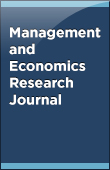
10.18639/MERJ.2024.9900103
Original Research Article
Dec 12, 2024
Within the COVID-19 outbreak context, some industries were seriously affected, and the travel and tourism industry was undisputedly one of those industries. Mumpreneurs operating in the tourism sector are on the rise, particularly in the accommodation and hospitality sub-sector. The COVID-19 pandemic had a significant impact on mumpreneurs operating in the tourism sector as businesses were closed for some period at the beginning of the crisis, leaving them without any income. Therefore, the research paper has been undertaken to examine mumpreneurs’ business recovery plans in response to new challenges within the context of the pandemic in South Africa and likewise to explore the underlying business management practices needed by mumpreneurs to recover and continue to operate post-COVID-19. Using a phenomenological research approach, in-depth interviews were conducted to comprehend the experiences of mumpreneurs and understand their recovery plans post-COVID-19. The findings of the study indicated that the pandemic impacted the business operations of mumpreneurs, and as a result, various business recovery strategies were employed to mitigate the risk posed by the pandemic. The findings can be utilized to make viable decisions to boost mumpreneurs in South Africa since they are a valuable proportion of the economy.